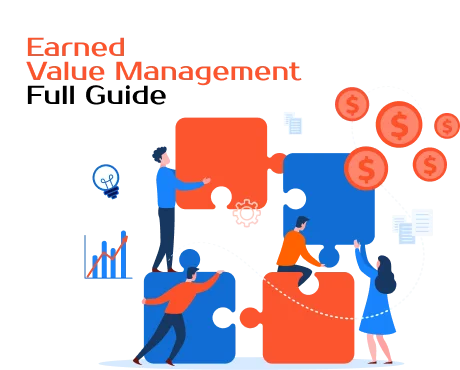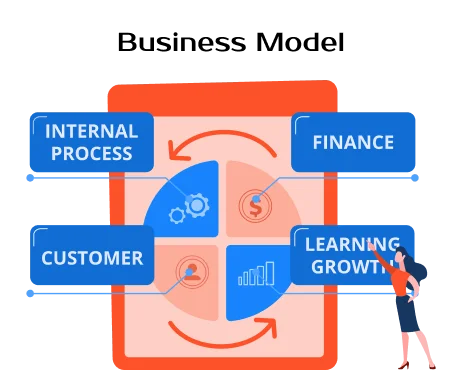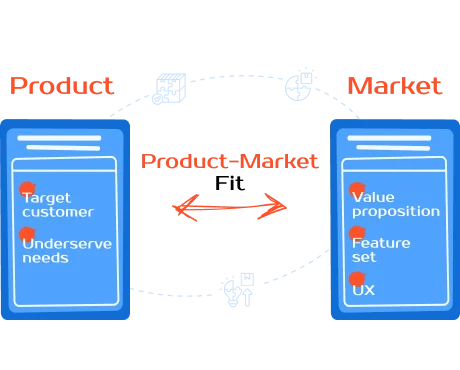Best Startup Business Ideas 2025
Published:
May 20, 2025

For first-time founders launching an IT, digital innovation, Web3, or embedded development business in 2025, the current tech landscape presents a significant opportunity. Industry analysis and expert insights suggest that shifting consumer needs, the rise of hybrid work models, and continuous advancements in AI and cloud technologies create a favorable environment for new products and services. Assessing market demand thoroughly, developing effective business strategies, and securing the necessary resources for growth in local and international markets is crucial.
Top 10 Startup Ideas
Each innovative startup ideas, address specific market needs, utilizes established best practices, and avoids outdated assumptions:
1. AI-Powered Contract Management Tools
If you want to streamline the contract process for busy legal teams, consider creating an AI-driven system that drafts, negotiates, and tracks legal agreements. By automatically reviewing clauses for risk and checking compliance requirements, your platform can save countless hours for in-house counsel. Large corporations, mid-sized businesses, and even smaller enterprises will appreciate transparent workflows and fewer manual errors. A subscription model is popular here, although you could explore one-time fees or usage-based plans that scale with contract volume.
2. Marketing Automation and Analytics Platforms
For companies eager to sharpen their online marketing strategies, an all-in-one platform that integrates customer data and automated social posting and suggests improvements can be a game-changer. By using AI to analyze user behavior, you can help clients optimize their ad spend, personalize outreach, and boost overall engagement. Position this product as a full-scale solution or tailor it to specific niches, such as local repair services or niche ecommerce shops.
3. Social Media Management for Influencers and Enterprises
Whether you're targeting brand managers or social media influencers, a specialized platform that centralizes content scheduling, analytics, and hashtag generation has strong market appeal. While there are established players, you can stand out by focusing on emerging networks like TikTok or by introducing real-time benchmarking and brand-mention tracking. Monthly subscription tiers, enterprise licensing, or feature-based pricing are all viable ways to monetize.
4. No-Code Course Creation and EdTech Solutions
If you're passionate about education, consider building a no-code platform that empowers anyone to launch their online courses. Handling design, hosting, and payment integration behind the scenes gives subject-matter experts a hassle-free path to share and sell knowledge. Add community features or affiliate marketing tools to keep learners engaged. As more people look for flexible skill-building opportunities, your platform could attract a broad audience of teachers and corporate trainers.
5. Employee Engagement and HR Analytics
Remote and hybrid work environments pose unique challenges for HR teams. You can help them by offering software that conducts quick pulse surveys, recognizes top performers, and delivers insightful analytics about morale and turnover risk. Focusing on clear data visualization and personalized dashboards makes it easier for leaders to tackle engagement issues before they escalate. A per-employee pricing model or an annual subscription can work well in this space.
6. All-in-One Remote Collaboration Suite
Although Slack and Microsoft Teams are industry giants, there's still demand for tools that merge chat, video calls, file sharing, and project management under one roof. Focus on features like AI-transcribed meetings or advanced brainstorming boards to stand out. Mid-sized businesses and cost-conscious teams that don't want to juggle multiple subscriptions will likely appreciate a more integrated, affordable option.
7. Telehealth and Cloud-Based EHR
Healthcare's shift to digital has created huge opportunities for telemedicine and cloud-based electronic health records. You might develop a platform that simplifies virtual consultations, stores patient data securely, and integrates with wearable devices for real-time monitoring. By navigating the regulatory requirements for privacy and data protection, you'll offer a modern solution that hospitals and clinics need to expand their reach and provide faster care.
8. Smart Logistics and Supply Chain Optimization
Global shipping disruptions and fluctuating demand make logistics a top priority for many businesses. Consider building software that uses AI or IoT sensors to track inventory, optimize routes, and alert managers about potential bottlenecks in real-time. You could narrow your focus to a specific sector—like agriculture or last-mile delivery—or keep it broad to appeal to manufacturers and e-commerce sellers seeking greater efficiency and cost savings.
9. FinTech and DeFi for Emerging Markets
If finance and blockchain intrigue you, a FinTech or decentralized finance (DeFi) platform might be your calling. Offering micro-lending services, cross-border payments, or blockchain-based verification can improve transparency and financial inclusion, especially where traditional banking is limited. Your revenue could come from small transaction fees or partnerships with larger financial institutions that want to extend secure, tech-driven services to underserved regions.
10. IoT and Embedded Systems for Smart Infrastructure
The Internet of Things remains a frontier for innovation, from sensor-equipped farms that automatically manage irrigation to industrial plants that rely on smart controllers. Combining hardware and software can provide comprehensive solutions for building security, energy management, and environmental monitoring. Collaborating with hardware partners or producing your own devices, then bundling them with an intuitive interface, can help organizations save time and resources while gaining valuable real-time insights.
Need help improving your business? Let’s talk
Key Considerations
The diverse business ideas share crucial characteristics: they target real market needs, offer strong potential for ongoing income, and can be expanded or modified. Every entrepreneurial plan must account for technology integration, effective branding, and thorough financial projections. Before investing significant resources, develop a clear strategic roadmap outlining your target customers, unique selling points, and risk management strategies.
Success in 2025, regardless of your chosen path, demands continuous learning, applying professional skills, and cultivating strong partnerships. Consider leveraging event promotions, public speaking, or press coverage to increase visibility. Exploring connections between different sectors, such as integrating educational technology with IoT-powered training devices or combining decentralized finance payment systems with social media commerce, can unlock new opportunities. For example, a company focused on professional development could integrate a user-friendly course platform with embedded sensors for physical training or specialized content designed for specific career tracks.
Building consumer trust is paramount, particularly for platforms handling sensitive information like financial, legal, or health data. Establishing a reputation for reliability and respecting user privacy is essential for long-term success. Whether you offer car-sharing, property management, or an hourly marketplace for cleaning and repairs, customers expect strong data protection in today's digital environment. Proactively addressing security concerns through certifications or licenses builds confidence among your audience.
Entrepreneurs must also carefully analyze the cost implications of each idea. Projects requiring extensive software development will necessitate a significant budget for a skilled team of engineers and designers. Conversely, simpler models, such as a niche marketing automation tool, might be viable with a smaller team, especially if you utilize affiliate sales or a partner-based franchise model. A well-defined financial plan enables better negotiations with potential investors or lenders, secures necessary funding, and facilitates efficient scaling.
Fostering a supportive company culture can significantly boost your success. You'll increase overall engagement by recognizing employees' achievements, offering professional training, and providing clear paths for career growth. Consider holding in-house coaching sessions or classes on emerging technology to sharpen your team's skills. This raises morale and facilitates knowledge sharing, helping your organization pivot quickly when trends shift. Consistent communication—whether through team briefings, media announcements, or social media posts—maintains credibility, encourages collaboration, and builds a loyal community around your product or service.
There is no single "right" way to carry out these IT startup ideas. Still, making sure you have a solid business model and address real user needs is essential. You might develop a Minimal Viable Product (MVP), test it with early adopters, and then pivot if necessary. In an age where brand reputation can swing on the back of social media or viral news, a blend of caution and adaptability will serve you well. A robust risk management plan—covering everything from international legal requirements to unexpected supply chain hiccups—will also help you stay ahead of potential setbacks.
Partnerships and alliances can be a fast track to growing your user base. You could form a joint venture with a hardware manufacturer, start an affiliate program with local retailers, or collaborate with press outlets to keep your profile in the public eye. Co-branding campaigns or cross-promotions with companies that share your vision can further amplify your reach. If, for example, you're working on an IoT-based farming platform, partnering with a well-known agricultural supply brand can open doors in physical stores where farmers frequently shop.
Next Steps
- Identify the niche or vertical where your strengths align with market demand.
- Choose a viable pricing model (subscription, one-time fee, usage-based) that suits your product's unique advantages.
- Ensure you have the right legal and technical frameworks in place, especially for regulated sectors like healthcare or finance.
- Stay receptive to customer feedback and continuously refine features to outpace your competition.
To conclude, the journey to establishing compelling new ideas for startup in 2025 relies on identifying a clear market gap, addressing it with an adept solution, and maintaining high standards of quality. Regardless of your chosen path, do not overlook the influence of intangible factors such as team motivation, brand storytelling, and relationship-building. Many potential founders look at initial capital and forget the intangible aspects—like how a tight-knit group of professionals can deliver an entire product suite faster than a large but disengaged workforce. Concentrate on building trust with your audience, refining your service or platform, and continuously improving based on data-driven insights. With thorough research, careful planning, and consistent execution, you can bring real innovation to life.





